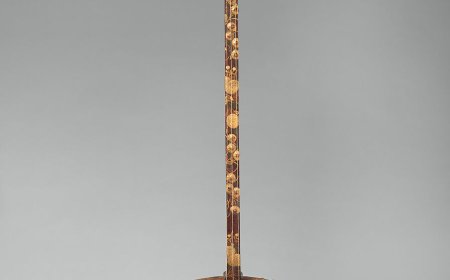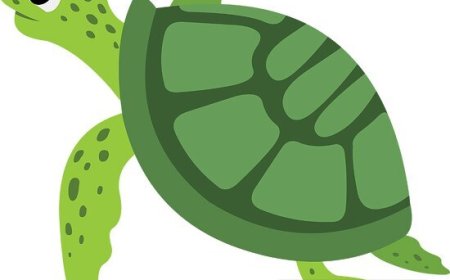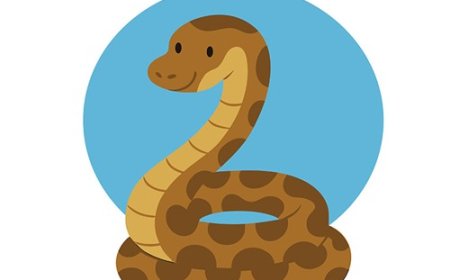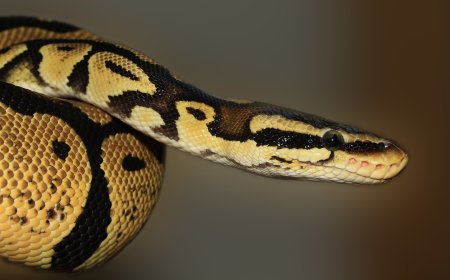Corn Snake Facts for Kids – Colorful Non-Venomous Snake
Learn about the corn snake, a harmless snake often kept as a pet for its calm nature
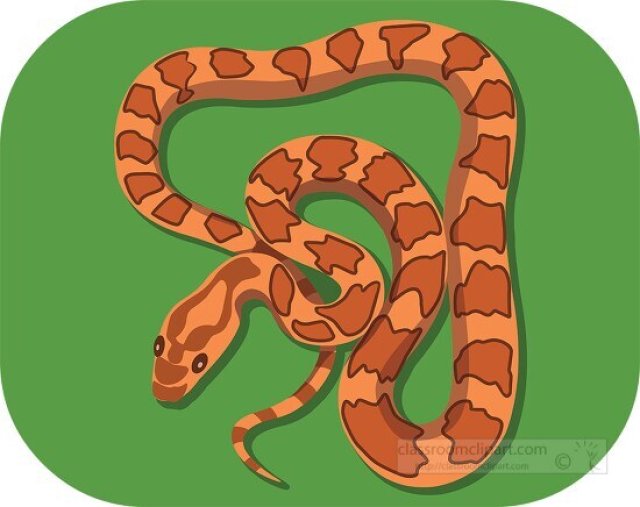
Corn Snake Facts for Kids – Colorful Non-Venomous Snake
Scientific Name and Classification
- Common Name: Corn snake
- Scientific Name: Pantherophis guttatus
- Kingdom: Animalia
- Phylum: Chordata
- Class: Reptilia
- Order: Squamata
- Family: Colubridae
- Genus: Pantherophis
- Species: P. guttatus
🐍 Introduction
The corn snake is a gentle, non-venomous snake. It is common in the southeastern United States. It helps farmers by eating mice and rats. It is a popular beginner pet.
🦎 Appearance
Adults are 2.5–5 ft (0.8–1.5 m). Wild types are orange or brown with red blotches and black borders. The belly shows a checkerboard pattern. Many color morphs exist in captivity.
🌍 Habitat
Lives in forests, fields, barns, and edges of farms. Hides under logs, boards, and debris. Range includes the southeastern U.S.
🍽 Diet
Eats rodents, small birds, and lizards. Hunts by smell and sight. Grabs prey and constricts lightly. Swallows prey whole.
🔄 Life Cycle
Egg-laying snake. Females lay 10–30 eggs in warm, hidden places. Eggs hatch in about 60–70 days. Young are independent. Lifespan can be 10–20+ years in care.
🐾 Behavior and Social Structure
Shy and mostly crepuscular or nocturnal in heat. Climbs well and explores. Rarely bites when handled gently. Uses musk to deter predators.
🛡 Conservation Status
Least Concern overall. Threats include habitat loss and road deaths. Protected in some areas from overcollection.
🎭 Cultural Significance
Favored in classrooms and nature centers. Teaches about safe, non-venomous snakes. Helps reduce fear of reptiles.
✨ Fun Facts
- Named for the corn-like belly pattern.
- Excellent climber and escape artist.
- Comes in many color morphs.
- Very popular beginner pet snake.
📌 Key Takeaways
- Non-venomous snake from the U.S. Southeast.
- Helpful to farms by eating rodents.
- Egg-laying with 10–30 eggs.
- Gentle, calm, and easy to handle.
- Many colors in captivity.
🐾 Kid-Friendly Summary
The corn snake is a colorful, friendly snake. It eats mice that harm crops. It is safe to humans and often kept as a pet. It helps people and nature.
📚 Vocabulary Words
- Non-venomous – Does not use venom.
- Checkerboard – A pattern of squares like a checkerboard.
- Musk – A strong-smelling fluid used for defense.
- Constrict – To squeeze prey.
- Morph – A color or pattern variety.
- Nocturnal – Active at night.
- Crepuscular – Active at dawn and dusk.
- Habitat – The place an animal lives.
🧠 Interactive Quiz: Test Your Corn Snake Knowledge
- Where do corn snakes come from?
- A. Southeast United States
- B. Northern Europe
- C. North Africa
- D. Arctic tundra
- What pattern is on the belly?
- A. Stripes only
- B. Checkerboard
- C. Polka dots
- D. Zigzag only
- True or False: Corn snakes are venomous.
- True
- False
- What do corn snakes mostly eat?
- A. Leaves
- B. Rodents
- C. Fish
- D. Insects only
- How many eggs can a corn snake lay?
- A. 1–3
- B. 4–6
- C. 10–30
- D. 100+





























